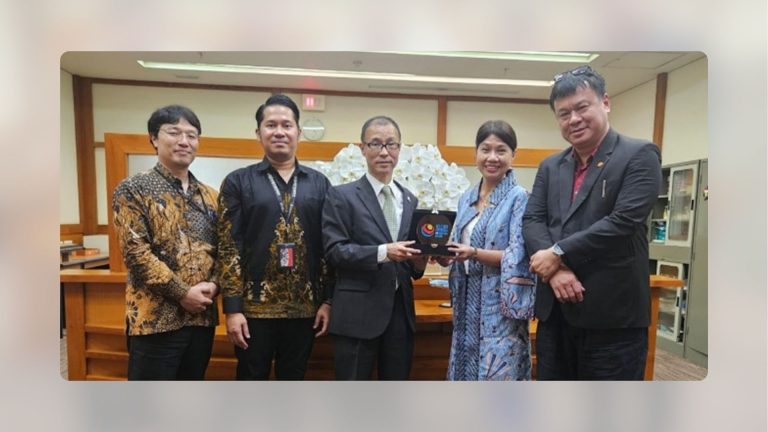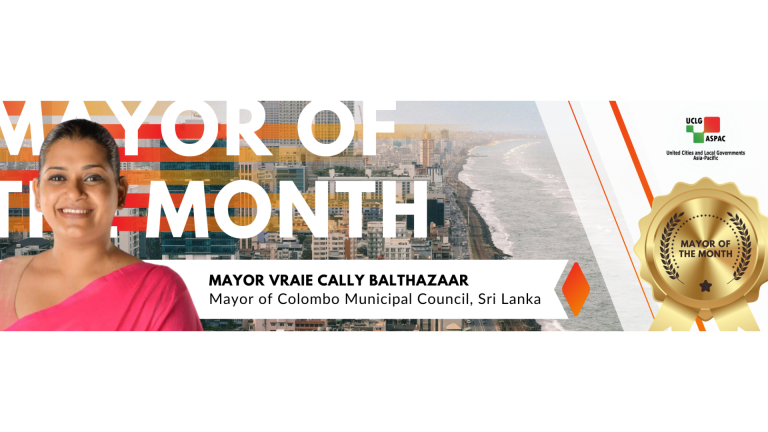UCLG ASPAC, the Secretariat of the Global Covenant of Mayors (GCoM) for Southeast Asia, has been assisting cities to realise their commitment to climate change under the framework of the International Urban Cooperation (IUC) Asia programme. With the guideline from GCoM and necessary capacity building activities from UCLG ASPAC’s IUC Asia Team, cities are able to identify their climate risks and vulnerability, and define mitigation targets and adaptation goals. By going through the process, cities are able to identify the focused areas, for example, flood prone, and to determine priority of adaptation plan and projects that needs to be conducted. It is from these evidence-based information that cities are able to create climate action plan (CAP) which is the ultimate goal of the programme.
UCLG ASPAC and its global networks have acknowledged that the capacity of cities to cope with climate challenge varies tremendously. Human resources and financial capacity play instrumental role to put necessary actions into reality. To ensure cities are able to take further actions needed, UCLG ASPAC also links and prepares cities to access opportunities such as the City Climate Finance Gap Fund (CCFGF). Launched on 22 September 2019, CCFGF is a result of the collaboration of global partner GCoM for Climate and Energy (a global alliance for climate leadership), German, and Luxembourg Governments. Through CCFGF, cities will obtain technical assistance needed so that they will be ready to tap in financing opportunities for their climate related projects ideally reflected in CAP. The CCFGF is unique as it will help cities in the early phases of the project: 1) to clearly define the climate related challenge that they face (project definition stage), and 2) to demonstrate the feasibility of the project proposed as solution (pre-feasibility stage). Technical assistance on the project preparation and the completion of the pre-investment cycle are definitely crucial for project bankability. Realising the importance, UCLG ASPAC’s IUC Asia Team has started preparing cities for the opportunity. Penampang District (Malaysia) is one of pilot cities that have gone through the preparation process.
Penampang District, with a population of 93,616, is facing the constant threat of major flooding that costs them significant socio-economic loss. Recognising CCFGF prospects, UCLG ASPAC’s IUC Asia Team helped the local government to identify the core issue of flood prevention and enable them to present a feasible work plan. The team also guided the local government of Penampang to collect and compile an array of early stage information, for instance, the brief description of project, the estimated amount of investment, the information on blended finance, stakeholder’s involvement, co-benefits and the sustainability performance. Collaboration among IUC Asia climate action experts, Penampang District authorities, and Malaysian academics resulted in a multi-pronged analysis on the assessment of Penampang’s environmental points, how to best prevent and mitigate the impact of floods, and what kind of environmental engineering technology is most fitted for Penampang.
UCLG ASPAC’s IUC Asia Team has also started the preparation process for other cities such as Hang Tuah Jaya and Muar. Good stakeholder engagement that enables discussion of the project is key factor in enabling cities. With the preparation conducted in parallel with CAP creation, UCLG ASPAC’s IUC Asia Team expects that cities are better equipped to apply for financing opportunities similar CCFGF after or even before their CAP concludes.
Photo: https://www.pxfuel.com/en/search?q=dollar+sign, Presentation of Councilor Freddy Ekol at IUC 3rd City to City Event











